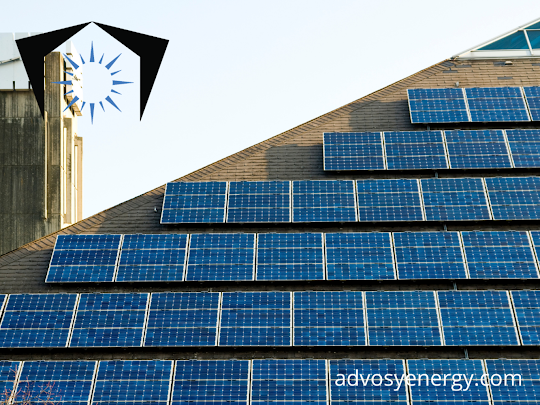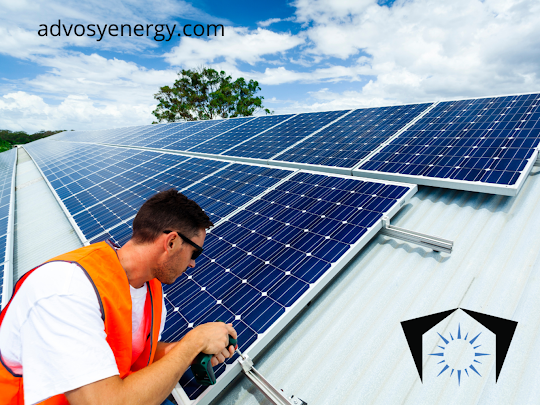YOUR GUIDE TO ROOFTOP SOLAR INSTALLATION
Rooftop solar installation is an inexpensive way to reduce your carbon footprint and save money. With the help of this guide, you’ll be able to find out more about how rooftop solar can work for you. This article will cover everything from finding a contractor, to deciding on what size system is right for you and your family. You can also read about some important considerations before signing up with a company. It’s not too late to take action today!
Finding a Rooftop Solar Contractor
One of the most important steps you can take is finding a reputable contractor. Think about what is important when choosing a contractor: how long has the company been in business, are they known for quality workmanship and customer service, do they have experience installing solar energy systems? Since there’s no nationwide database or rating guide to help with this process, it might be difficult to know where to begin. Although many contractors will offer you free quotes based on your home’s size and an average utility bill, be wary of some companies ask for upfront payments. It’s best not to pay any fees at this point as you haven’t even researched potential contractors yet. Focus on asking around—a couple of friends or family members may know of reliable solar contractors and be able to point you in the right direction.
You might also want to look up local reviews for rooftop solar contractors online at sites like Yelp.com, Google Business Pages, or Angie’s List and read more about their installations and customer service record so far. Solar Reviews is a great way to find reputable contractors too—they use an independent third-party review system to showcase top-rated companies throughout the United States, making it easier than ever to find qualified providers based on your location.
Checking Certifications and Licenses When hiring a contractor, make sure they are state-licensed by visiting your utility commission website for that specific state. You’ll need this information when going over solar financing options.
Ask about licenses and certifications from local or state organizations too, like the North American Board of Certified Energy Practitioners (NABCEP). These individuals or companies will have demonstrated expertise in solar energy systems that you can rely on for your rooftop installation.
With a list of contractors from trusted sources, you can get estimates based on your location and home size. If you find some estimates cost-prohibitive for your budget, don’t rule them out right away—you may not need as much energy as you think. Instead, ask about other options like funding plans that may help reduce your upfront cost and monthly payments. Look at the 30 years (or higher) payback period to see how much interest you can save by choosing a more affordable rooftop solar system.
Advantages of rooftop solar installation
There are many benefits to installing a solar energy system at home, even if it doesn’t cover all your power needs:
A solar installation will offset the dirty energy you use in your home or business—reducing sources of carbon emissions that harm our environment and contribute to climate change.
If you install a self-sufficient rooftop solar system, it eliminates the need for long-term utility contracts (or any at all) which can save you thousands over time. Your system can also work closely with the electricity grid by reducing demand charges when other systems in your area are drawing more power than usual from utilities during peak hours.
In some states, rooftop solar owners receive additional credits on their utility bills for providing excess electricity back into the grid whenever they produce more than they use. This can amount to significant savings at the end of the month.
With energy prices expected to continue rising, rooftop solar installation may help you save money in the long term. Although it may be difficult to predict how much you’ll actually save in retirement, future generations will certainly enjoy clean power and lower utility costs if we all do our part today.
Not only is rooftop solar environmentally friendly, but it’s also relatively easy and affordable for homeowners (or business owners) with any budget to install on their homes or commercial property. The cost of installing a residential rooftop system has fallen by as much as 50% over the last decade, making it an even better investment opportunity for those who still have doubts about its long-term value.
Solar energy systems are also relatively simple to maintain—aside from cleaning the panels once a year, there is little upkeep required for individual units and most of the system will be handled by your hired contractor. If you have any questions about your solar installation and utility bills, feel free to contact them with any additional inquiries. Weighing these investment costs against the benefits of rooftop solar can help determine if it’s right for your personal situation.
Types of rooftop solar installations
There are two main types of rooftop solar installations—those that self-sufficient homes with full power generation capabilities, and those that work in tandem with traditional energy sources. Here is a quick look at the two different options.
Option 1: tiered
Tier systems use smaller units installed on your roof to generate electricity for an entire home or commercial property. Typically, these systems range from 2 kilowatts to 10 kilowatts in size but can be much larger if necessary depending on the power needs of your electrical system.
These systems use inverters to convert direct current (DC) energy into alternating current (AC) energy—the type needed for household appliances and devices, and then send it directly to your home or business. Some systems may also have batteries for storing excess energy that can be used at a later time, while others rely on net metering which gives you credits from utilities for any extra electricity generated that is sent back into the grid (see next section).
Option 2: net-metered
Net-metered systems run exclusively on solar energy and work in tandem with the power grid by feeding electricity produced from rooftop units directly back into local distribution lines. If you host a net-metered system, you’ll receive utility bill credits equal to the value of electricity provided during peak hours (typically between 3 pm and 8 pm on weekdays when usage is most intense). These credits can add up to thousands of dollars per year based on typical electricity rates.




